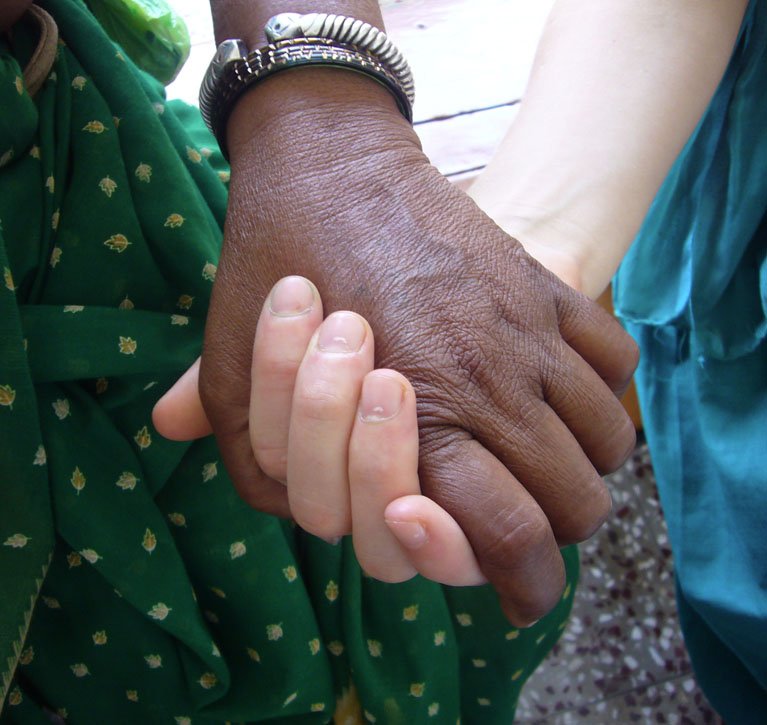
Dr. Jason (07) and Olivia Kroening-Roche (07) founded the nonprofit called Rural Health Collaborative (RHC) in 2010. They later teamed up with fellow alumni Heidi Pollard-Hermann (05), Heather Poynter-Lausch (07), Jess Schulz (07), and Steph Cadman (07) to grow the organization. Their hope is to improve the health of women in rural Ghana, and empower women in their own communities.
It all began in the district of Akatsi (pronounced “ah-ka-chi”) in eastern Ghana. This district is made up of over 100 villages of varying levels of poverty. The PLNU alumni of RHC, with backgrounds in nursing, biology, and mathematics, recognized the need for health training in these villages.
To date, these alums have trained 47 women across two districts in eastern Ghana, whom they refer to as the “Kekeli” women, meaning “brightness” in the local language. The goal of RHC is to invest in these women, and see them become leaders in their communities by developing an awareness of health issues and a deeper knowledge of how to address them.
“It’s such a good mission to improve the lives of women and girls in Ghana,” said Pollard-Hermann, who became involved after reaching out to her friends, founders Jason and Olivia Kroening-Roche, to volunteer for a trip to Ghana two years ago. “Seeing the change the Kekeli women create in their communities inspired me to get more involved with RHC and help others find meaningful ways to contribute to RHC’s work.”
Poynter-Lausch, monitoring and evaluation director of RHC, calculated that in 2015, they held 350 training sessions and reached 10,500 people in different villages. By the end of 2016, they were on track to have about 530 trainings and reach about 18,000 people. “The training sessions have a really powerful effect on reaching others,” she said.
In Ghana, a majority of the women with whom RHC comes in contact are Christians, since this is the dominant religion of their region. For Pollard-Hermann, having a foundation of faith is “one of the biggest motivators for why we do any of this work.” She makes it a point to “bring light” into the areas in which she works, and RHC gives her a lot of opportunities to do just that. She said, “over the last decade, everyone has been living out those values in their own ways.”
PLNU’s School of Nursing has recently become a partner in the work RHC is doing. In June 2016, Dr. Christine Sloan, associate professor of nursing, took a group of students to Ghana.
“We connected right away and were able to set up the students with the Kekeli women, so they could go to some of their trainings, interview them, and visit some of their villages,” said Pollard-Hermann.
Sloan told RHC this connection with local women was one of her and her students’ favorite parts of the trip.
“Through the Kekeli Women Project, RHC is equipping and empowering indigenous leaders to significantly impact the health of their communities,” she said. “The School of Nursing is privileged to partner with RHC through our Ghana Study Abroad Program. Students are given the opportunity to engage in meaningful work while expanding their worldview. Hopefully they will be inspired to replicate RHC’s model of service as nurses.”